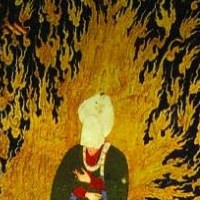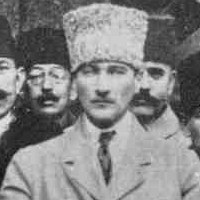![]()
Saturday, September 19, 2015 | by R. Joseph Hoffmann
Some Facts:
- 4.1 Million: The number of Syrians who have fled their country since the country’s civil war began in 2011.
- 381,000: The number of refugees and migrants who have reached Europe this year, a figure far larger than in any recent year.
- 1.9 Million: The number of Syrian refugees in Turkey, the largest single concentration.
- 244,000: The number of migrants arriving in Greece, accounting for two-thirds of the total reaching 98,783: The number of applications for asylum in Germany so far this year, a figure that is expected to accelerate rapidly. Germany has been more welcoming to asylum seekers than any other European country and says it could take up to 500,000 asylum seekers annually.
- 0 (Or Very Close To It): The number of Syrian refugees who have been formally resettled in the wealthy states of the Persian Gulf, including Saudi Arabia, the United Arab Emirates, Kuwait and Bahrain.
Lesser numbers in order of percentages are coming from Afghanistan, Eritrea, Somalia and Nigeria. More than 90% of these refugees are Muslims.
By now everyone is well aware “how” this happened: American adventurism in the Middle East after post 9-11 reprisal attacks and invasions of bystander-countries destabilized the region, under the guise of fostering American-style democracy. It permitted a Shi’a majority to take control in Iraq and for militant Sunni dissidents to foment rebellion in neighboring Syria. The “fall” of Momar Ghaddafi led to the elimination Europe’s strong man in the region. For decades Ghaddafi was paid to intercept and imprison defectors who tried to get into Europe across the Gulf of Aden, as Amanda Taub writes,
“Gadhafi was something like Europe’s bouncer, helping to keep the potentially significant number of African migrants and refugees from ever reaching the continent. His methods were terrible: Libya imprisoned migrants in camps where rape and torture were widespread. But Europe was happy to have someone else worrying about the problem.”
That something is now gone.
The largest single factor however was the hideously-captioned Arab Spring that western powers looked upon, very briefly after 2011, as an upsurge in democratic spirit that would blow across the region supplanting dictators and ushering in a new age of peace and brotherhood. The only brotherhood initially to emanate from this fundamentalist groundswell was the Muslim Brotherhood in Egypt, efficiently put to heel after it was revealed that Mohamed Morsi was a fundamentalist mole who sought to undermine the Egyptian Constitution and the role of the army as the guarantor of the Egyptian republic. At the same time, the Arab Spring also fueled Syria’s war, and led to conflict in Yemen, and eventually to the rise of ISIS in Syria and Iraq. Of course, none of this caused the exodus of refugees from, say, Afghanistan or Myanmar, but the Arab Spring was perhaps the largest single spark of the ongoing global refugee crisis.
But that is history. The Now is that millions of Muslims are yearning for what their governments back home can’t give them: raindrops on roses and schnitzel with noodles, plus free medical care and staying rights in advanced, largely peaceable, European Shangri-Las.
Looking at the boatloads, train-cars-full, and busloads of escapees from countries the refuges call “repressive” (it is a word that instinctively causes liberal European hackles to rise and mercy to flow), I could not help wondering what God is being thanked for the deliverance. When Israel was in Egypt Land, as the old Negro spiritual runs, it was pretty clear that Aton and Ra weren’t the gods in charge of their exodus. It was the God the Hebrew tribes had brought in with them, so they thought, that showed them the way out. The promised land was promised by him, not by Pharaoh’s mandarins.
This may seem a small, even fanciful point. But it does raise an old theological question that every first year philosophy student used to know a thing or two about: the problem of theodicy — the justice of God.
The problem is this — If God is good and created all things why does evil exist? Did he create it? If so he is not all good, for he tolerates the existence of something against his will. Is he not powerful enough to prevent it? Then he is not omnipotent. Does he not foresee its consequences? Then he is not omniscient. It seems that God cannot win.
The solution in the Christian tradition was reached in the fourth century when Saint Augustine proposed that evil does indeed exist, but only as a “privation of good’ — a negative quantity, which cannot exist independently of the good God wills, creates, and attempts to sustain.
It is, at best an interesting piece of theology and at worst a piece of sophistry. But for almost 2000 years it was the received explanation of how evil exists in a world that God declared “good.” It meant that the moral evil which exists—evil that results from the choices people make freely, is really the price paid for the existence of free will — another good, which God bestowed on the first couple, Adam and Eve only to see it corrupted. “Natural” evil is a little harder to explain — fires, early death, disease, earthquakes, killer typhoons and famine — since these come through disaster and not through choices humans would make for themselves. Indeed, Christian theology never came up with a good explanation of why God tolerated natural evil except the rather obscure notion that as God he has a right to ‘test’ the faith of people, as he did in the time of Noah.

Police clash with Muslim immigrants in Hungary, September 08, 2015 (still image, Youtube video, ABC News)
The Islamic solution to the problem of evil as in so many areas of speculation was far more simple: God does what he wants by virtue of his power, his divine nature and will — because he is God. He creates destroys, punishes, condemns and saves at his pleasure — a bit like his Old Testament prototype. The intrinsic logic of Christian theology was cast aside, if it was known or understood, by the early Muslim community in favor of a strong tribal chief who rules the nations with a strong and unarguable right arm. In Islam, theodicy is answered by a form of the argument from authority: as God is God he can do what he likes. But in logic this is a fallacy and even to theologians who have great respect for Islam it is the fatal flaw at the heart of its theological system. It is their belief that a God who is merciful need not show mercy, and a God who is able to forgive has issued unalterable decrees, the violation of which leads to death and damnation. In this system, it is too bad that there have to be refugees, but, after all, it is not the fault of Allah that there are. As Sodom and Gomorrah were smitten for their wickedness, why not other places that have gone astray?
What does this have to do with Islamic refugees to Europe? Actually nothing directly, except to say it raises a theological question in relation to a political “situation.” In Christian theology, God is more or less bound to respond to prayer and supplication with acts of kindness and generosity — called grace. The great paradigm of this grace (something between love and charity) is the story of Jesus, the “son” of God who was sacrificed for the sake of humanity. “Greater love than this no man has, than that a man should lay down his life for his friends.”
The secular generosity of Europe is grounded in a long history of Christian charity—which despite claims to the contrary is very difficult to locate in Islamic civilization. One stunning proof of this is the fact that the majority of the wealthiest Islamic nations are turning their back on the refugee crisis. Anyone who believes the Christian maxim, What you have done for the least of my brethren you have done also to me, will be appalled at this graphic illustration of religious and human indifference. It is a hole at the center of Islam. The Islamic idea of brotherhood stems from tribal solidarity, not moral philosophy and exhortation. What is distressing is that the vaunted care for the widow and orphan (cf. Surah 8) commended in the Quran as the obligation of every Muslim worldwide as a cornerstone of the ideal of the ummah rings very hollow when the orphans and widows and desperate men are Syrian, Eritrean, Nigerian and Somali.
Which raises a more brooding question for the Believers: As you believe in God, what God do you thank for this grace? Who is praised when an immigrant crosses from Hungary to Austria or Germany? The God of the Bible, or the God of the Quran? The God of Abraham, Isaac and Jacob who was the God of Jesus, or the God revealed in the teaching of the Prophet, whose slim counsels of compassion seem a very distant trumpet to your leaders, religious teachers, and the worldwide Muslim community in general. The God of Pope Francis, who called on every Catholic parish in Europe to shelter the homeless, or the God of Abu Bakr al-Baghdadi who has driven hundreds of thousands from their homes? Whose grace will you remember in a generation? Whose praises will you sing, and why?
R. Joseph Hoffmann graduated from Harvard Divinity School and the University of Oxford (Ancient Near Eastern Studies). Hoffmann was tutor in Greek at Keble College and Senior Scholar at St Cross College, Oxford, and Wissenschaftlicher Assistent in Patristics and Classical Studies at the University of Heidelberg. He taught at universities in the United States, Britain and Lebanon. He has held visiting positions at universities in Africa, the Middle East, the Pacific and South Asia. He is now Professor of Liberal Arts at the American University of Central Asia. Beyond academe, he is well known for his advocacy of the humanist tradition. In his recent work, Hoffmann has turned increasingly to the work of ”humanist restoration”. His most recent books include an edited volume entitled Just War and Jihad: Violence in Judaism, Christianity and Islam (2006) and Sources of the Jesus Tradition (2010.) His study of the concept of the right to life in early Christianity, Faith and Foeticide, will be published in 2015, along with another in his series of translations of the classical philosophical critiques of the Christian movement: Christianity: The Minor Critics. He blogs at The New Oxonian. Read his full biography here. For all the exclusive blog entries by R. Joseph Hoffmann, go here.



 RSS
RSS










The biggest hole in Islam is that it does not have set rules for succession and change of secular government though it refuses to separate civil government and religion and so accepts that government is part of religion – so should be provided for. The very fact tha the original Prophet and the, “Four Righteous Cailiphs,” were all assassinated tells against Islam and its adherents when complaining about the West. Ironically the Khameneii constitution for Iran proves the point by borrowing elections and two tiers of government: religious guidance and practical secular government.